Article written by Rose Hayes.
This article features insights from the CBWW Wellness Program Coordinator Morgan Barnes, MPH, on environmental wellness.
Center for Black Women’s Wellness
Empowering Women to Become Whole, Healed and Well
Article written by Rose Hayes.
This article features insights from the CBWW Wellness Program Coordinator Morgan Barnes, MPH, on environmental wellness.
Article written by Rose Hayes.
This article features insights from the CBWW Wellness Program Coordinator Morgan Barnes, MPH, on environmental wellness.
When Meredith Leapley arrived at last year’s Numbers Too Big To Ignore Luncheon, an annual banquet held by the Atlanta Women’s Foundation (AWF), she was overjoyed to see not only a high number in attendance but also donations. The highest number of donations in the foundation’s history, raising over $1.2 million, noted Leapley in a recent Zoom conversation.
With AmeriCorps Week coming to a close, the federal agency for volunteering and service awarded $500,000 in grants to three Atlanta-based community nonprofits.
The gifts will be used to expand the reach of the organizations, building upon the existing services provided to deepen their impact. Each organization employs AmeriCorps VISTA members, who dedicate one year of full-time service to help alleviate poverty in the community they serve.
by Jemea Dorsey
Health care consortium Kaiser Permanente will donate $200,000 to the Center for Black Women’s Wellness and the Georgia Family Connection Partnership.
The two Atlanta-based organizations will receive roughly $100,000 each to better health practices among caregivers and shrink the racial gap negatively impacting Georgia’s Black families.
by Jemea Dorsey
The Center for Black Women’s Wellness rang in the new year as a Culture Catalyst on Dick Clark’s New Year’s Rockin’ Eve with Ryan Seacrest. Their segment spotlighted how the nonprofit addresses persistent inequities in health outcomes among underserved Atlanta Black women and their families through health care, prenatal services, mental health support, and educational workshops.
“Our biggest push for 2023 is focusing on women’s healthcare for our community,” said CEO Jemea Dorsey “In light of the closing of the Atlanta Medical Center, we want to get the word out about who we are and what we do. We especially want to serve women who are uninsured or underinsured in need of vital health services, such as pap tests, clinical breast exams, mammograms, and lab services.”
by Jemea Dorsey
Grants aim to connect more Georgians to lifesaving maternity care and education
Kaiser Permanente is granting nearly $200,000 to community organizations to help improve maternal and infant health in Georgia. The funding will help enhance prenatal and postnatal care, reduce the rate of low birthweight births and infant mortality, and address disparities in maternal care.
The grants will support two Atlanta-based organizations serving women and families across the state.
by Noelle Mobley and Asiany Williams
COVID-19 has affected numerous lives around the world, including how people are able to manage their own health if they’re unable to seek a medical professional. Here are 10 practices we recommend to stay safe at home:
1. Stay at home unless you absolutely need to seek medical treatment. I know it’s hard to drop everything you’re doing when you are sick, but it is important to stay home when you start showing symptoms. This will help prevent the virus from spreading to other people. Ask a family member, friend, or a neighbor if they can assist with certain tasks that may require you to leave the house such as going to the grocery store. Maybe offer to give them gas money or purchase one of the items on their grocery list to return the favor. I usually ask my younger cousin who is 16 who may need a little gas money! Just think of it as doing a public service to prevent someone else from becoming ill.
2. Supervise your symptoms, and if they start to worsen, call your healthcare provider as soon as possible. If you are unable to go to your local healthcare provider right away, be sure to observe your symptoms the best way you can. COVID symptoms can vary, some people experience mild symptoms such as: sneezing, coughing, and a runny nose, while others experience more severe symptoms such as: fever, chills/shivers, delirium, shortness of breath and chest pains. It is important to observe your symptoms and notice when they are becoming severe. If symptoms become severe contact your local healthcare provider or call 911 to visit the emergency room for care.
3. Ensure you’re getting enough sleep and fluids to remain hydrated. Friends, I cannot stress how important it is to make sure you are getting enough sleep and fluids to remain hydrated. According to scientists, it is very easy to get dehydrated when you are sick because cold and flu symptoms increase the amount of water your body loses. As a result of losing water dehydration may occur if your fluid intake is not increased to compensate. So, even though you may not feel like swallowing because you have a sore throat, it is vital that you drink as much water as possible.
Sleeping is another must when you are sick! By resting during the day, your body will be able to devote more resources to fighting the virus. Research tells us that your body uses the time you sleep to develop key proteins in your brain. If you have kids at home and you’re sick, see if a family member, or a neighbor can watch them for a couple hours so you can get some rest, this can help avoid parental burnout. “Parental burnout is the physical, mental, and emotional exhaustion that one feels from the chronic stress of parenting,” Dr. Puja Aggarwal. If you absolutely cannot find someone to watch your child while you are sick try to sleep when they are sleeping. This can be challenging with mounting household tasks, but even short naps that are 10 to 20 minutes long, help you recharge. Research shows napping can also reduce your stress level and will allow you to make time for things like cleaning, meal preparation, and other general tasks.
4. Notify your healthcare provider if you tested positive or have COVID-19 related symptoms. After you have tested positive or have had COVID-19 related symptoms you may become worried about the diagnosis and what may happen after it is important to contact your healthcare provider so they can help you make informed choices about your health.
5. Call 911 immediately for a medical emergency and inform the responder that you either have or experiencing COVID-19 symptoms. It is very important to inform these conditions to the dispatcher in order for the first responder to approach the situation with specific precautions such as the proper personal protective equipment (PPE). By failing to inform the first responder of your symptoms, you may delay treatment.
6. Protect yourself by covering your nose and mouth when you cough and sneeze. These are basic practices that should be followed daily. However, with the spread of COVID-19 it is critical to reduce the amount of germs that can also aid in other deadly respiratory diseases such as influenza. Cough or sneeze into your elbow if tissue is not available. Dispose all used tissue followed by washing your hands immediately afterwards, with soap and water (20 seconds).
7. Wash your hands. To decrease the spread of COVID-19 it is important to wash your hands with soap and water (20 seconds). If you are unable to get to a bathroom to wash your hands use hand sanitizer with a base that is 60% alcohol. Remember the virus can be spread through the air or on a surface that you touch before touching your eyes, nose, or mouth. I like to keep hand sanitizer in my purse or in my pocket so that I can clean my hands before eating or doing something where I may have to touch my face.
8. Remain away from others even within your home if possible. Okay friends, I know this can be difficult for some people to follow, especially people living in homes with multiple people, but it is vital to try to remain away from others while you are sick. If you must leave your room and you live in a shared household, be sure to take the following precautions: put on your mask and tell others in your household to put their mask on BEFORE you come out of your room, this can avoid people getting sick from droplets in the air when you sneeze or cough; wash your hands before touching objects that are commonly shared; use lysol wipes or disinfectant wipes to clean any surfaces that you have touched in the house.
9. Steer clear of others personal items, you should not share dishes, towels and/or bedding. Although we may be in the same household and it becomes second hand nature to use certain items, unfortunately this is all it takes for the transmission of COVID-19 to spread from you onto the entire household. Keep track of the items you used while also keeping them away from others within the same household. In a case where you may have to share dishes, wear gloves and wash with soap and hot water. Wash towels and bedding on the hot setting before sharing with others.
10. Clean your space! This includes anything within your household that is touched frequently. This could be doorknobs, tables, light switches, tv remotes, and/or phones. Always wear gloves while cleaning, followed by using disinfectant wipes or products that suit the furniture or countertop. In addition, if you are in a situation where you do have to share a space with someone who is experiencing COVID-19 symptoms, be sure to enforce good ventilation. By opening some windows in the house you can reduce the amount of respiratory droplets within the rooms.
By: Asiany Williams and Noelle Mobley
After more than three decades, the Center for Black Women’s Wellness has expanded at the Dunbar Neighborhood Center in southwest Atlanta to serve more residents with affordable health care.
The center’s clientele base can now grow from 1,300 to 2,600 patients over the next six months thanks to an additional 1,500 square feet of space, according to the nonprofit.
Jemea Dorsey, the nonprofit’s CEO, said they provide free primary health care and mental health services to anyone who is uninsured or underinsured with low to moderate income.
“So many health conditions continue to disproportionately impact the Black community,” she said. “We believe we’re a trusted resource and a safe space for Black women and families and we want folks to know we’re here.”
A top federal official in charge of negotiating with Gov. Brian Kemp on Georgia’s high-stakes health care proposals visited Atlanta on Tuesday to talk about maternal health and other topics.
But Chiquita Brooks-LaSure, the Centers for Medicare and Medicaid Services administrator, had no answers for when any of the half-million adults uninsured under current Georgia Medicaid rules might have a pathway to coverage.
Kemp and Brooks-LaSure didn’t even meet. A Kemp spokeswoman said the governor’s office got no invitation for a meeting.
It’s been more than a year since the Trump administration stamped a last-minute approval on two of Kemp’s health care “waiver” plans as Donald Trump’s presidential term drew to a close. And it’s been several months since President Joe Biden’s administration raised concerns and paused the plans.
Meanwhile, half a million Georgians remain uninsured in the “coverage gap”: too poor for subsidized ACA exchange insurance under federal law, and ineligible for Medicaid under current Georgia rules.
Both sides say they’re still in talks.
For more than 30 years, the AIDS Walk Atlanta has helped the city raise vital funds to support local HIV and AIDS nonprofit organizations.
Led by the AIDS Healthcare Foundation (AHF), the annual fundraiser will help these organizations continue their mission to bring awareness to and provide services for those living with AIDS.
AHF Atlanta Regional Director Dawn Averill said in a statement that the organization is “proud to present this event as one of the many ways that we educate and empower the local community to join the fight against HIV and AIDS.”
The Center for Black Women Wellness (CBWW) is one of the organizations that will receive funds raised from the walk. Their CEO, Jemea Dorsey says, its mission is to improve the health and well-being of Black women and their families and provide affordable quality healthcare for the uninsured.
“We have always integrated HIV testing in our work and want to recognize it and make it a normal part of receiving care whether you’re receiving GYN or primary care.”
Averill said that this year’s walk would be a family-fun event, with something for everyone to enjoy.
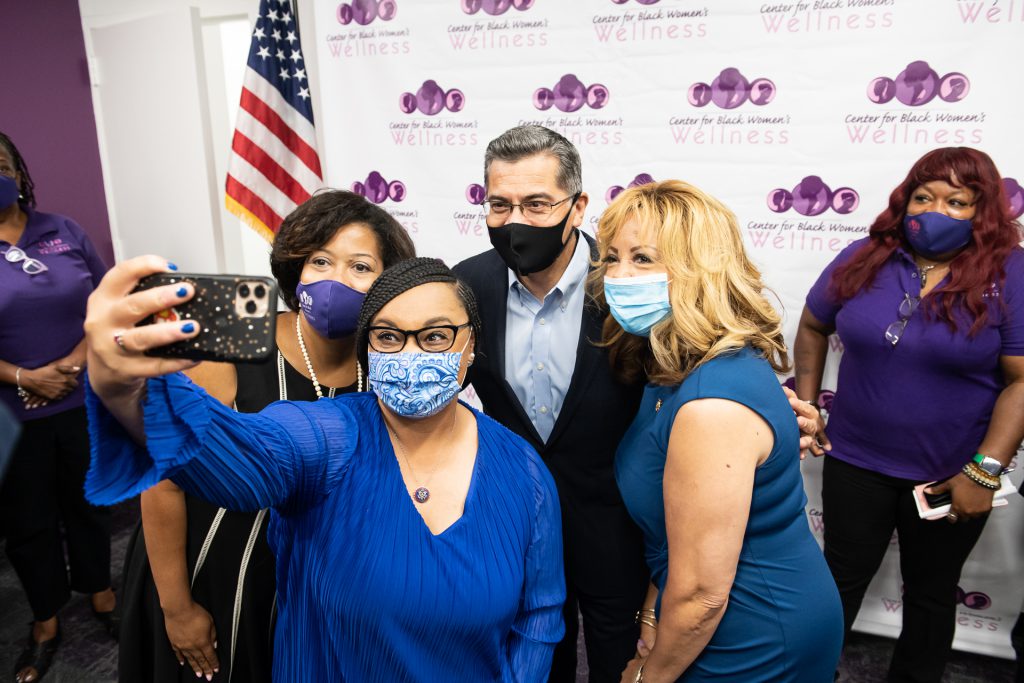
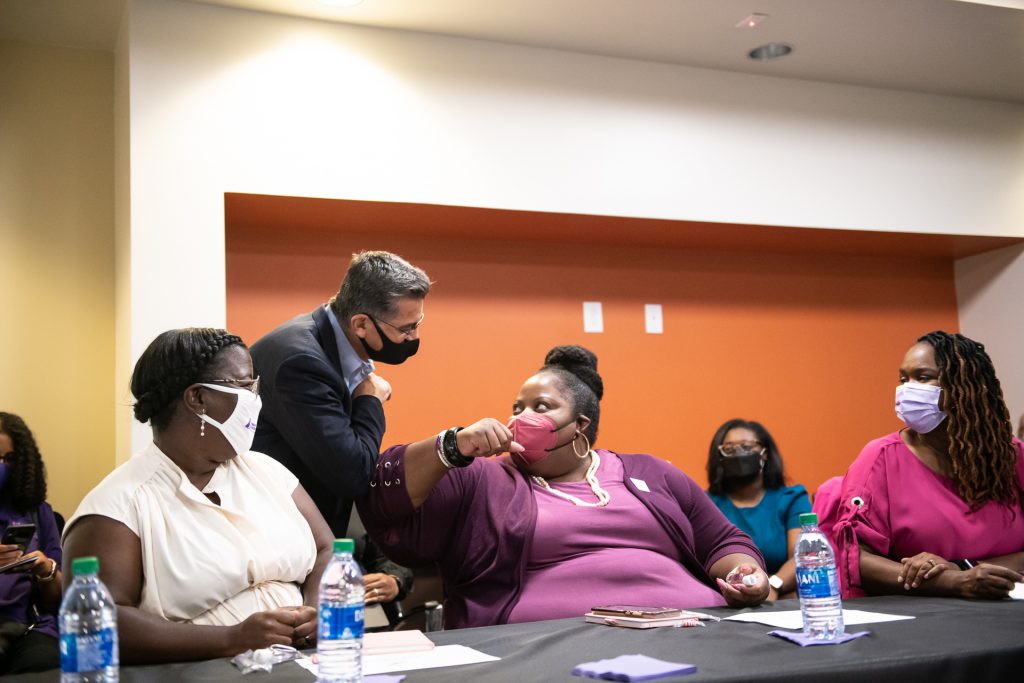
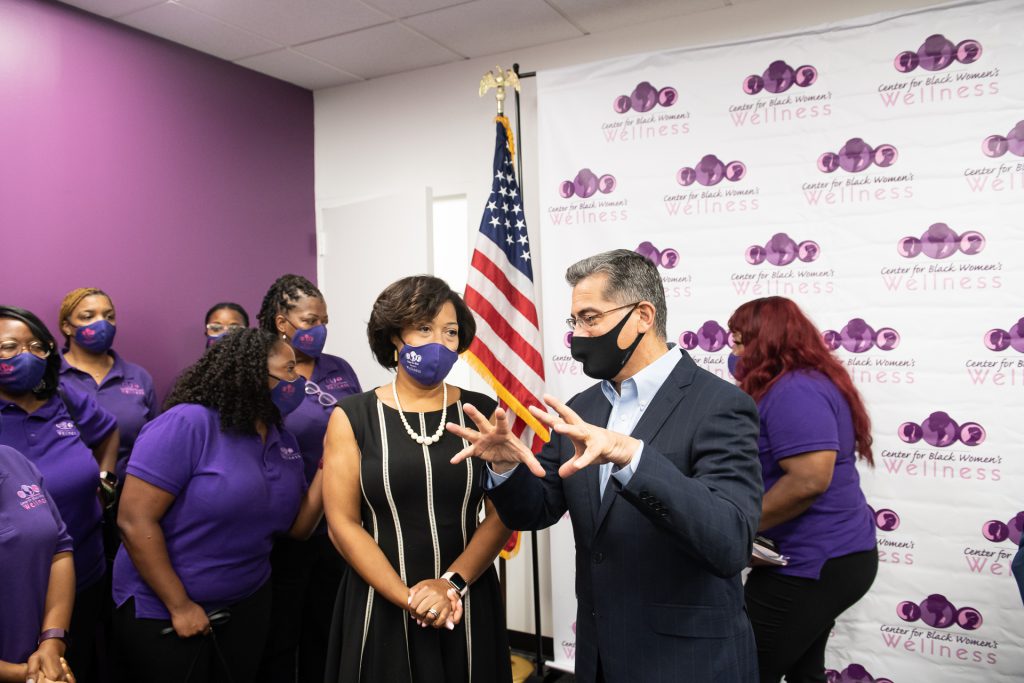
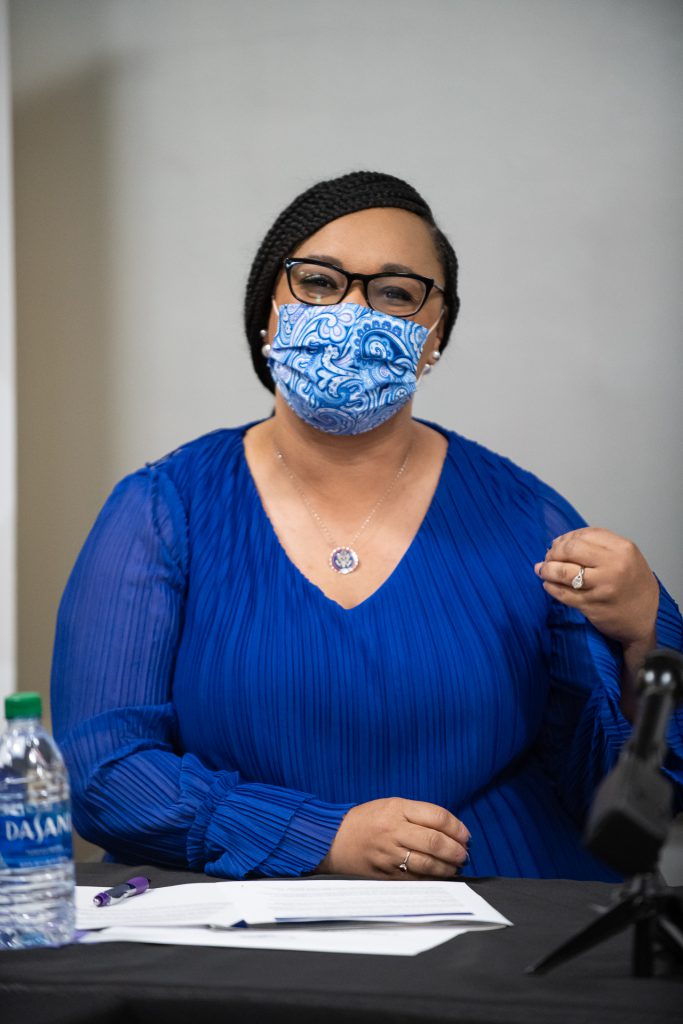
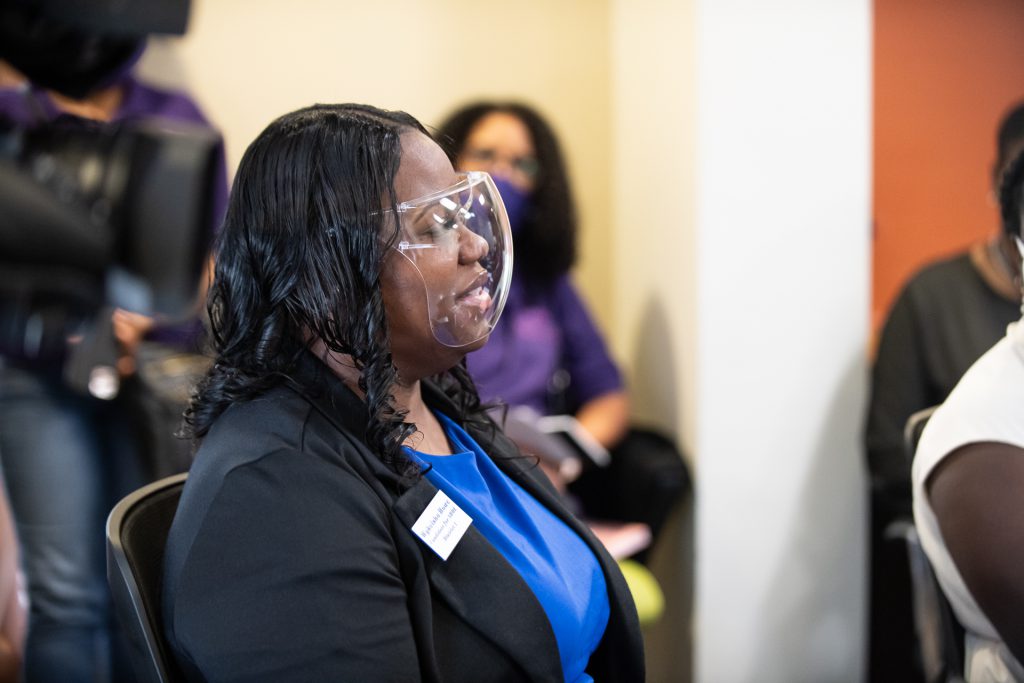
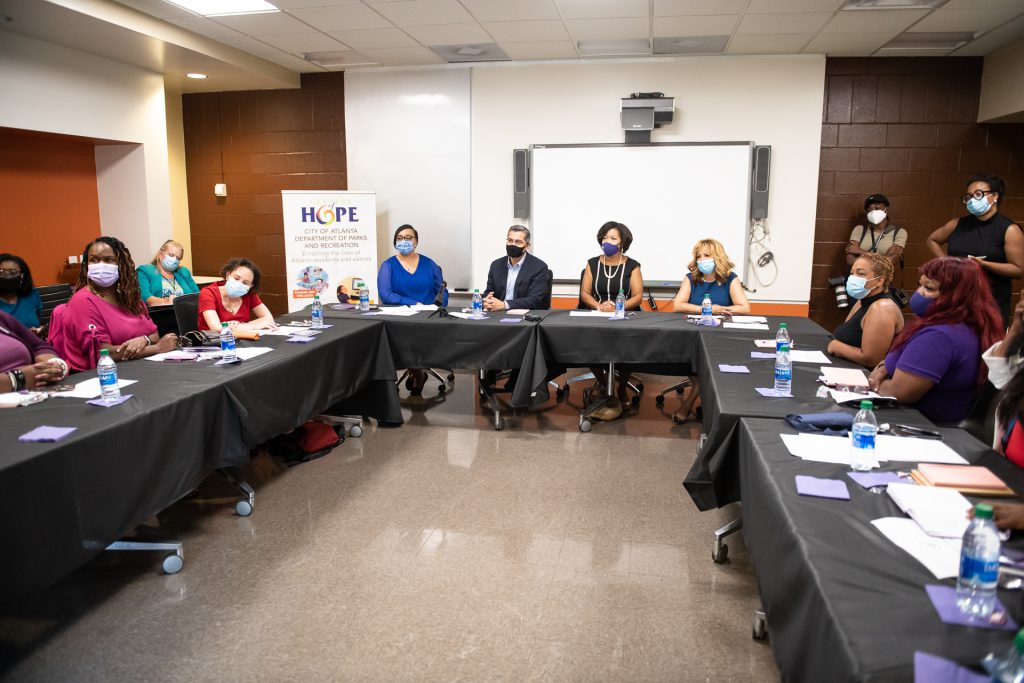
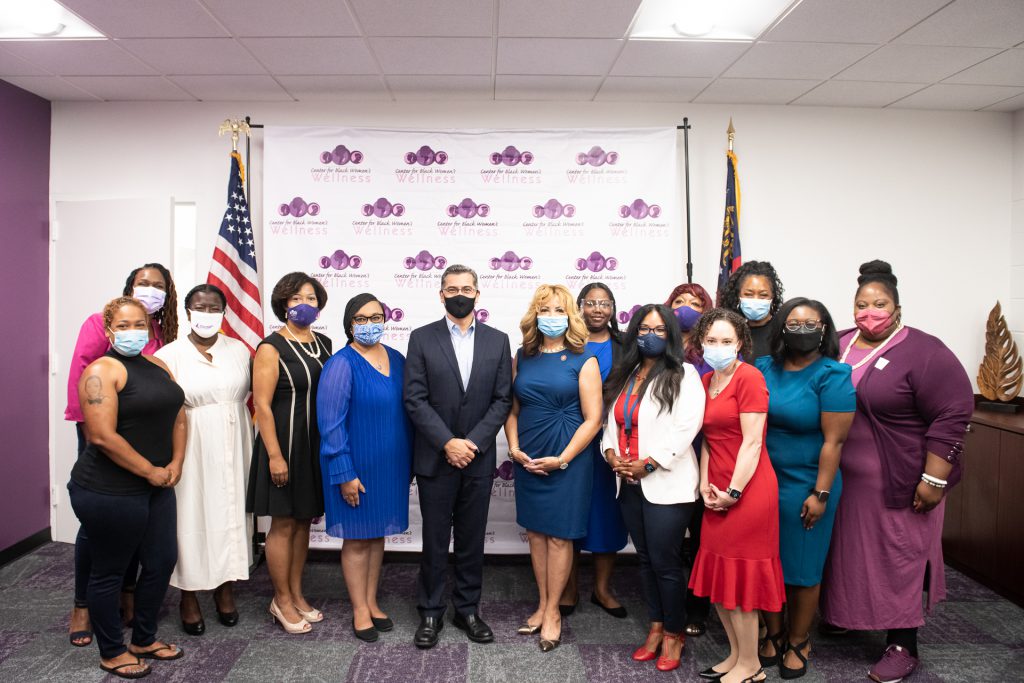
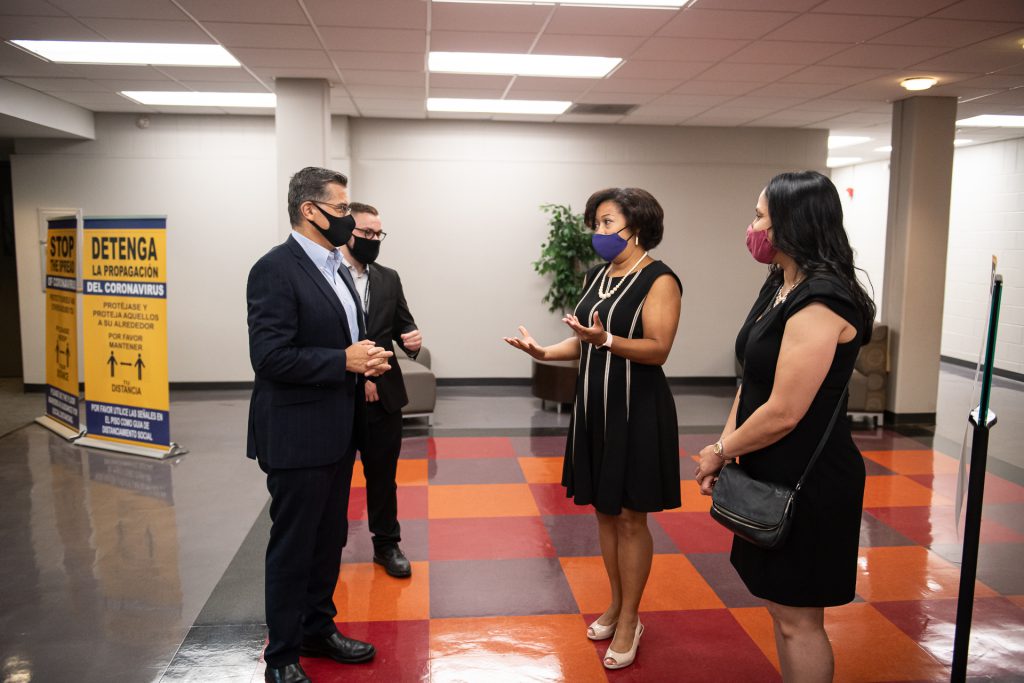
At a stop Monday in Atlanta, U.S. Health and Human Services Secretary Xavier Becerra applauded Georgia Democrats for pursuing a “workaround” to compel the state to expand the Medicaid program.
“There’s a proposal that the state has put on the table, and we’re reviewing it. We’d like to work with them. We’d like to make it work,” he said, adding: “Georgia’s in the conversation. We just have to do it right.”
Becerra spoke at a roundtable event focused on Black maternal health at the Center for Black Women Wellness in Atlanta. Physicians, midwives and advocates urged more federal funding aimed at reducing the stark disparity in the state’s maternal mortality rate, which leaves Black women four times more likely to die from pregnancy-related issues than white women.
Many of the attendees said that while expanding Medicaid would be a welcome step, state and federal leaders need to take more drastic action to narrow the gap. They urged more money for pilot programs and research initiatives, along with new laws that allow midwives broader medical authorities.
U.S. Department of Health and Human Services Secretary Xavier Becerra visited Georgia on Monday amid a battle between state officials and federal Democrats over expanding Medicaid.
Becerra was joined by high-profile Democratic politicians including Atlanta Mayor Keisha Lance Bottoms and U.S. Reps. Carolyn Bourdeaux, Lucy McBath and Nikema Williams.
During his trip, Becerra hosted roundtables with community leaders to hear firsthand the health care issues plaguing Georgians. From Atlanta to Norcross, advocates described racial disparities in medical services, told stories of poor maternal health and voiced support of expanding Medicaid to cover more people.
But Medicaid expansion in Georgia is unlikely, as Republican state officials and lawmakers have refused to take the option to expand insurance for poor adults under the Affordable Care Act.
Gov. Brian Kemp has instead offered his own partial expansion plan to the federal government, which is under review by Becerra’s agency. But the Biden administration has already rejected aspects of the proposal, suggesting that the plan will not get federal approval.
Georgia had the third highest uninsured population prior to the pandemic. The Peach State is one of 12 states that have chosen not to expand the federal health care program.
While at a meeting in Atlanta, Becerra said he is open to working with the state on its proposal but didn’t offer optimism about the outcome.
ATLANTA – A top federal health official says he understands frustration with new mask requirements, but the country can overcome them if people accept responsibility for fighting the coronavirus.
U.S. Health and Human Services Secretary Xavier Becerra was in Georgia on Monday as COVID-19 infections and hospitalizations in the state continued to rise amid a low vaccination rate.
Becerra says he doesn’t blame Americans for questioning the mask requirement.
But he says everyone shares a responsibility to both get vaccinated and wear masks to help stave off the ongoing surge of the delta variant.
477 Windsor St SW
Suite 309
Atlanta, GA, 30312
(404) 688-9202
Office Hours: M-F, 9am – 5pm
info@cbww.org
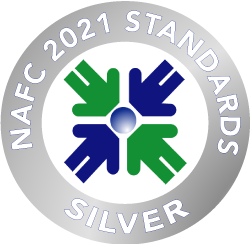
The Center for Black Women’s Wellness is a tax-deductible charitable organization. Tax ID Number: 58-2212203.